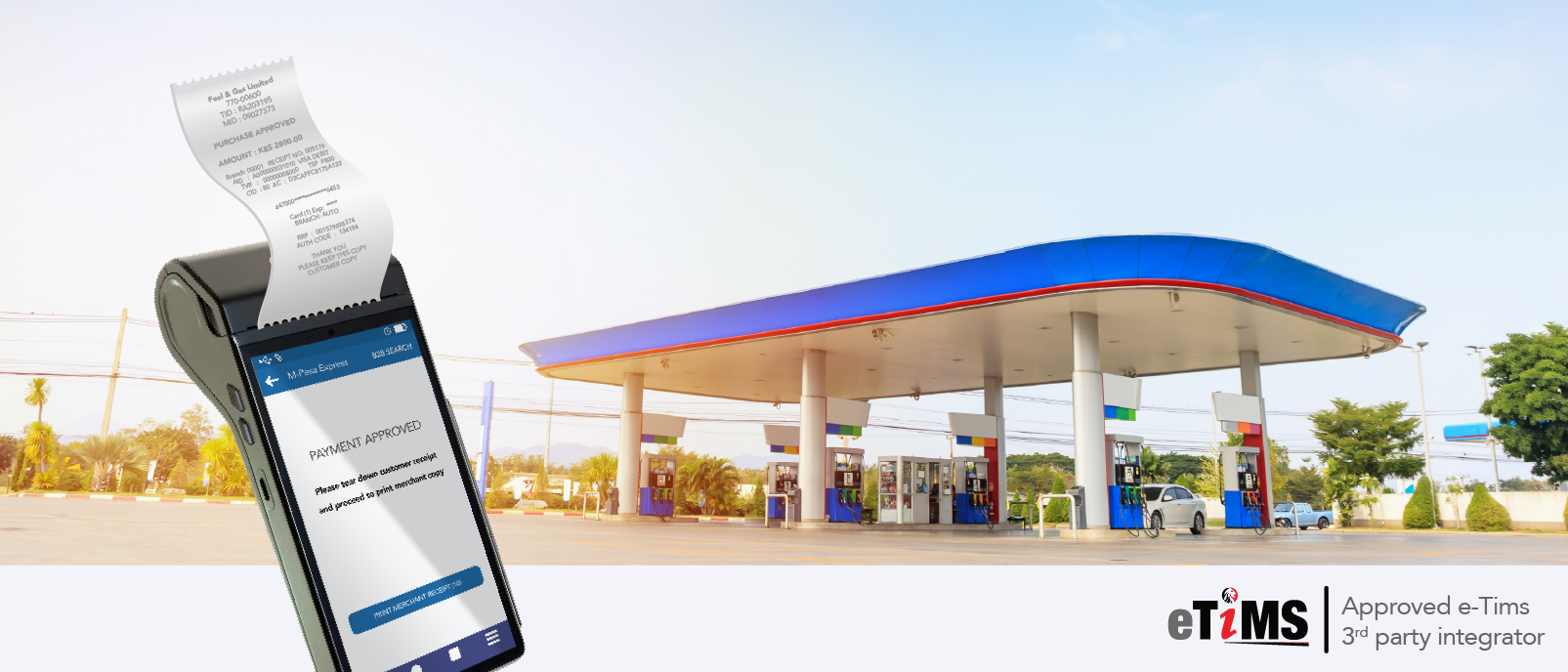
Running a fuel station today means juggling more than just pumps and payments. From managing inventory across multiple sites to reconciling daily sales and issuing compliant invoices, operators are under constant pressure to stay efficient, transparent, and responsive to customer needs.
For many, these tasks are still handled manually — leading to reporting errors, delayed decision-making, and missed opportunities to serve business clients who need valid tax invoices for their own compliance.
Against this backdrop, Kenya’s petroleum sector is undergoing an important transformation. The Kenya Revenue Authority (KRA) has introduced a directive requiring all fuel stations to integrate with the Electronic Tax Invoice Management System (eTIMS) by June 2025. This initiative is part of a broader effort to improve VAT compliance and support more transparent, data-driven operations across the economy.
The integration is expected to bring forecourt fuel sales under direct and continuous monitoring by tax authorities. Under the new requirement, all transaction data generated from fuel dispensers must be relayed to the eTIMS server in real time, ensuring that every sale is captured and taxed accurately. Additionally, motorists—particularly those fueling fleet or commercial vehicles can now provide their KRA Personal Identification Number (PIN) at the point of fueling. This requirement is aimed at generating valid tax invoices, which are essential for businesses seeking to claim input VAT.
In anticipation of this sector-wide digital transition, KRA has accredited several technology vendors to support fuel station operators with the required integration. Among these accredited providers is Pesapal, offering financial technology and digital infrastructure solutions. Pesapal has developed the Pesapal Forecourt Management System (FMS) is a petrol station system specifically tailored for fuel stations. The system allows operators to automate fuel pump operations, monitor fuel stock levels, and capture sales data anywhere offering centralized control and visibility—key advantages in a sector historically plagued by fuel leakage, pilferage, and underreporting of revenue.
Through seamless connectivity with eTIMS, Pesapal’s FMS simplifies the fiscalization process by automatically capturing transactions and transmitting them to KRA. Pesapal not only meets compliance requirements but also optimizes operational efficiency and unlocks data-driven insights for the businesses. The platform supports multiple payment methods, including M-Pesa, debit cards, credit cards & fleet cards, offering convenience for motorists.
While the new directive introduces additional compliance obligations for fuel station operators, industry analysts see it as an opportunity to digitally transform operations and enhance long-term business competitiveness. In an increasingly digitized economic landscape, regulatory compliance can double as a strategic advantage. Fuel stations that integrate technology are better positioned to streamline operations, gain insights through real-time data analytics, and improve customer service.
For many entrepreneurs, especially those managing multiple petrol stations, manual reporting and accounting systems make it difficult to track daily sales, monitor inventory, and assess performance accurately. Without a centralized system, business owners often struggle to make informed, data-driven decisions. Fuel management systems such as those provided by Pesapal, eliminate manual discrepancies and enhance the accuracy of sales performance data—empowering business leaders to focus on growth and strategy.
To meet KRA’s directive, fuel retailers must now engage certified technology providers capable of delivering infrastructure that supports seamless eTIMS integration with existing fuel pump systems. POS systems must be able to communicate directly with dispensers, process payments instantly, and ensure all transaction records are securely and consistently relayed to KRA’s servers. Beyond compliance, the systems should also enhance operational efficiency by offering remote monitoring, stock tracking, and customized reporting tools for internal performance evaluation.
As the rollout continues, fuel retailers are being urged to not only adopt the necessary systems but also train their teams on how to use the new technology effectively. Staying up to date with any changes in compliance guidelines or system updates from KRA will be critical to ensuring continuous alignment with regulatory expectations.
Ultimately, the adoption of Pesapal Forecourt Management Solution by fuel station owners represents more than a compliance exercise. It is a significant step toward digitizing petrol stations, minimizing revenue leakage, and ensuring compliance. Embracing this change is both a regulatory necessity and a business opportunity in an increasingly data-driven world.
Get Pesapal Forecourt Management Solution
Get Started Today